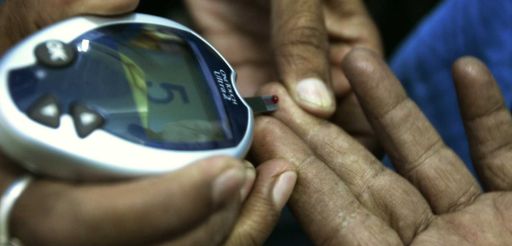
New Delhi, December 14: First the good news: Indians are living much longer than they did 40 years ago.
The life expectancy (LE) at birth of an average Indian male has gone up by 15 years between 1970 and 2010, while that of an Indian woman by 18 years.
An average Indian man can expect to live for as long as 63 years, while an Indian woman can live 4.5 years longer than her male counterpart.
However, the number of years they stay healthy is much lesser.
An Indian male can claim to be in good health till he reaches the age of 54.6 years, and is expected to spend the last nine years of his life suffering from various ailments.
On the other hand, when it comes to an average Indian woman, though she is expected to live till 67.5 years, she will remain healthy till 57.1 years - spending over a decade, or 10.4 years in poor health.
The Global Burden of Disease Study, 2010 — the largest ever study to describe the global distribution and causes of a wide array of major diseases, injuries and health risk factors — has found that even though there is reason to cheer over an Indian's increasing lifespan, it is still much shorter than an average Chinese or an American.
An average Chinese male is living 10 years longer than an Indian male, while a Chinese woman is living 11.5 years longer than her Indian counterpart. An average American lives nearly 13 years longer than an Indian.
Published in the most prestigious British medical journal, The Lancet, the study was conducted over five years by 486 authors from over 300 institutes in 50 countries, including India.
A common practice in Indian households - mainly in rural settings of burning wood, coal and animal dung as fuel in chulhas — has proved to be the greatest enemy for Indians.
While globally, high blood pressure was the single biggest causative agent of disease, it was indoor air pollution (IAP) for Indians.
The WHO had earlier said that burning solid fuels to prepare their meals emit carbon monoxide, benzene and formaldehyde which can result in pneumonia, asthma, blindness, lung cancer, tuberculosis and low birth weight.
WHO estimates that pollution levels in rural Indian kitchens are 30 times higher than recommended levels and six times higher than air pollution levels found in the national Capital.
The other threats to normal Indians include diet low in fruits, high blood glucose levels, alcohol use, iron deficiency, sub optimal breast feeding, low physical activity and occupational injuries.
Tobacco smoking, including second-hand smoke, caused nearly 6.3 million deaths across the globe. With India being one of the world's major tobacco users, most of these deaths may have happened here.
Lower back pain — a common phenomenon among Indians — has been found to be the leading cause of years lived with disability (YLD) globally. Pain in the neck along with depressive disorders and iron deficiency anemia made up the top four leading causes of YLD.





Comments
Add new comment